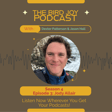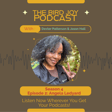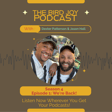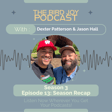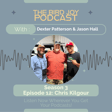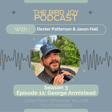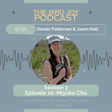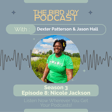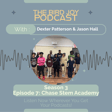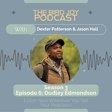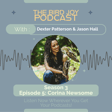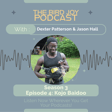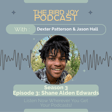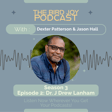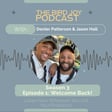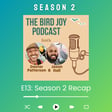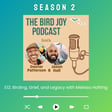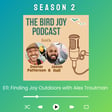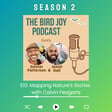
Birding and Conservation
What is conservation in birding? How can you contribute to bird conservation locally? Join Dexter and Jason as they explore how to find bird joy while contributing to conservation. You don’t need to be a tenured PhD in Ornithology to contribute to conservation locally. There are several local opportunities to participate, such as those offered by the Cornell Lab of Ornithology.
Seek and join the conversations in your local municipalities, counties, and communities. Those likely lead to laws that impact habitat and access to green space. It’s a good way to stay engaged. Other initiatives like Homegrown National Park give you the pathway to contributing habitat for birds, bugs, plants, and other types of wildlife.
Whether it’s American Kestrel Banding, Monarch Butterfly plantings, Bluebird Box Monitoring, or monitoring the homies coming to your patch feeders, there are multitudes of opportunities out there to get involved.
Who knows where this might lead you? You could end up learning why Large Billed Terns are showing up in Florida or contributing data to Brown Booby migration patterns. You may even get lucky enough to count gulls in a trash dump one winter.
You don’t need to do it all. Stay within your means and understand that every little bit matters.
Be sure to follow our podcast on Instagram at @thebirdjoypod and subscribe wherever you get your podcasts.
